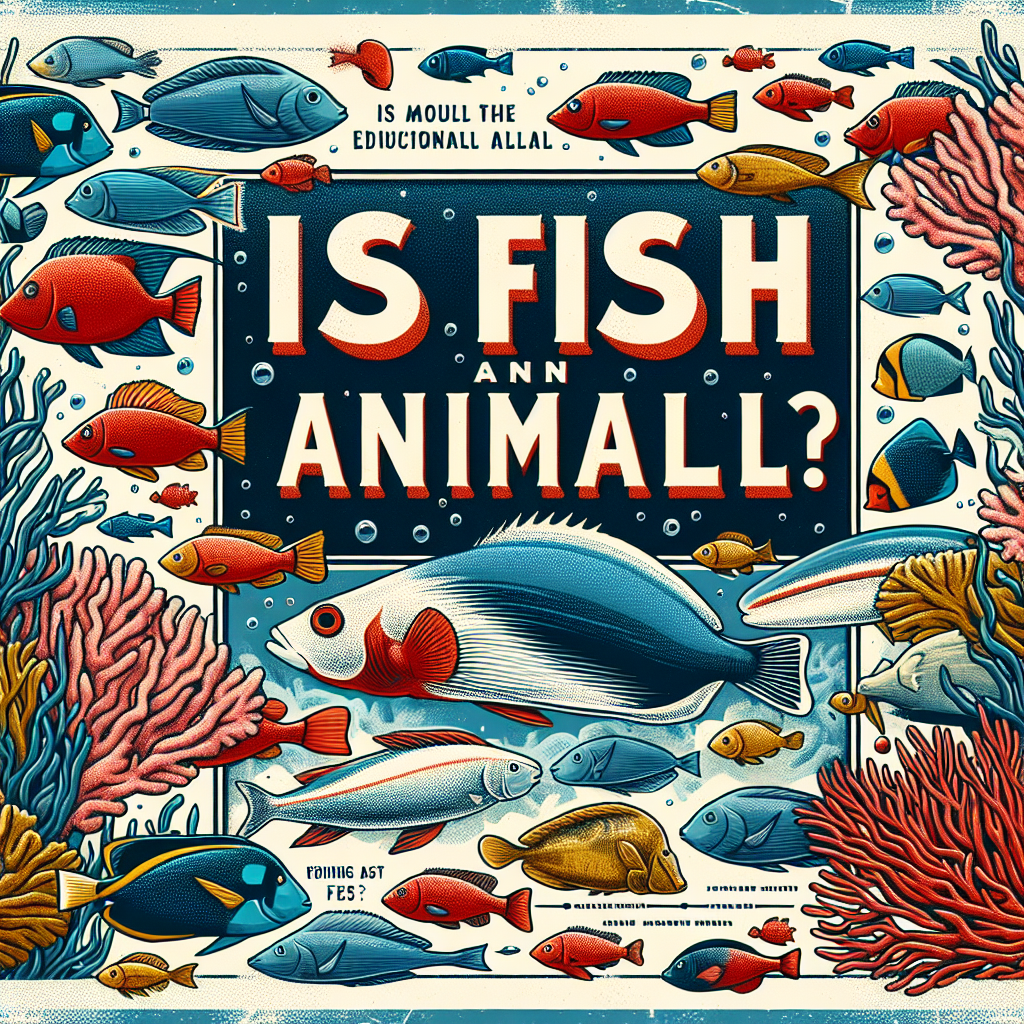Is Fish an Animal? Understanding the Classification of Fish in the Animal Kingdom
When we think of fish, we often envision schools of colorful underwater creatures, gracefully gliding through the water. However, some individuals may find themselves pondering a fundamental question: Is fish an animal? The straightforward answer is yes, fish are indeed classified as animals. Yet, to fully appreciate this classification, we must delve deeper into the biological, ecological, and taxonomical aspects of fish and their place within the animal kingdom.
The Biological Classification of Fish
Fish belong to the kingdom Animalia, which encompasses a vast array of multicellular organisms that exhibit characteristics such as the ability to move, consume organic matter, reproduce, and respond to their environment. Within this kingdom, fish are further classified into several categories:
-
Phylum Chordata: This phylum includes animals that have a notochord (a flexible rod that supports the body) at some stage during their life cycle. Fish are part of this group, defined by their vertebrate structure—meaning they possess a backbone.
-
Subphylum Vertebrata: Within Chordata, fish are categorized into the subphylum Vertebrata, which comprises animals with an internal skeleton. This subphylum contains all vertebrates, including mammals, birds, reptiles, amphibians, and, of course, fish.
- Class Actinopterygii and Class Chondrichthyes: The two primary classes of fish are bony fish (Actinopterygii) and cartilaginous fish (Chondrichthyes). Bony fish, which include species like salmon and tuna, make up the majority of fish species. In contrast, cartilaginous fish, such as sharks and rays, feature skeletons made of cartilage rather than bone.
Characteristics of Fish as Animals
Fish exhibit several defining characteristics that align them with the broader classification of animals:
-
Respiration: Fish breathe through gills, specialized organs that extract oxygen from water. This respiration method is a hallmark of aquatic life, allowing fish to thrive in underwater environments.
-
Reproduction: Like most animals, fish reproduce sexually, though some species can also reproduce asexually. They lay eggs or give live birth, depending on the species.
-
Movement: Fish are characterized by their ability to swim, utilizing fins for propulsion and maneuverability in water.
- Nervous System: Fish possess a complex nervous system and brain that enable them to process sensory information and respond to their environment effectively.
Ecological Importance of Fish
Fish play a crucial role in aquatic ecosystems and the environment at large. As both predators and prey, they contribute to food webs and maintain the balance within their habitats. Fish also participate in nutrient cycling and help support biodiversity by creating complex environments like coral reefs and underwater forests.
In addition, fish are vital for human economies and cultures, providing food, recreational opportunities, and a source of income through fisheries and aquaculture. The connection between humans and fish highlights the importance of understanding and protecting aquatic ecosystems.
Conclusion
In conclusion, fish are undeniably classified as animals, falling under the kingdom Animalia and sharing essential characteristics that align them with other living beings. Their unique biological traits and ecological significance affirm their role in both nature and human society. By recognizing fish as animals, we can deepen our appreciation for the complexities of the animal kingdom and advocate for the preservation of the aquatic environments they inhabit. Understanding the classification of fish not only enriches our knowledge but also emphasizes the interconnectedness of all living organisms in the grand tapestry of life.





